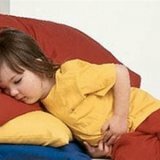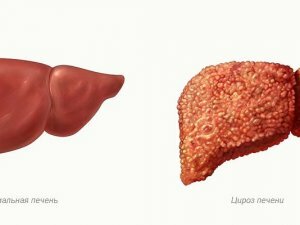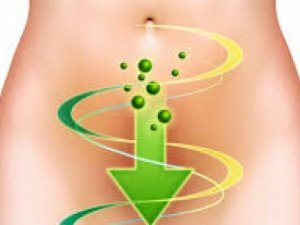Viral intestinal infection in children

Intestinal diseases are a group of diseases that try to affect the gastrointestinal tract. According to the spread in the world, intestinal diseases stand in second place, after respiratory diseases. And more than 50% of all cases of intestinal diseases occur in children. Viral intestinal infection in children has about 10 groups of species. Among the viral intestinal infections, the most common are enterovirus and rotavirus infections. In everyday life, rotavirus infections are also called intestinal flu. The group of enterovirus diseases includes several dozen different viruses that cause a strictly defined disease. In summer, intestinal infections occur much more often.
The causes of the appearance of viral intestinal infection
The cause of the emergence and development of viral infections are viruses, such as enterovirus and rotavirus. Any of the intestinal infections is transmitted with water, food, as well as any objects that you use. Bacteria and viruses develop very quickly and spread in the aquatic environment, in food and can often be on dirty hands. All these bacteria produce a poisonous enterotoxin, after entering the intestinal tract, it begins to poison the child's body.
Symptoms of
Intestinal bacterial infection occurs at a temperature of 37-38 degrees, most often accompanied by vomiting with the onset of colitis. Colitis is a greenish tinge of mucus, with heavier forms of this disease, blood is observed. There may also be painful impulses for defecation, which are called tenesmus.
With rotavirus infections there is also repeated vomiting with a yellowish stool, a high fever, everything starts very sharply and sharply.
Enterovirus diseases are very difficult to diagnose, but also very acute when accompanied by high temperature. Because of the different clinical picture, the diagnosis is very difficult( rapid pulse, weakness, diarrhea, nasopharyngeal inflammation, headaches, muscle pains, tearing, convulsions, photophobia, pain in the heart, drowsiness).More than a few dozen viruses are in this group. Most of them have strictly defined symptoms. This group of viruses is very dangerous, they can affect the heart, muscles, central nervous system and skin.
There is also a viral infection called adenovirus. At this type of infection, catarrhal manifestations are very pronounced, but it can also affect the intestine at a certain stage of the disease.
The greatest danger for young children is the high temperature, which can cause seizures and some disturbances in energy metabolism at the cellular level. All the substances that the body uses to support vital activity begin to be used much more quickly and the body is very quickly depleted, which entails a danger to the life of the child.
The temperature is above 38 degrees, for very young children who are several months old, it is very dangerous, for children over 1 year old, the critical temperature is above 39 degrees.
Treatment of intestinal infection
Viral infection in children should proceed without dehydration. Any treatment can be prescribed only by a doctor. Parents should not allow the dehydration of the child before the arrival of a doctor, and for this, the proper watering of the child is necessary. It is necessary to give the child to drink a little bit, in small sips, in small portions and not give him water as much as he drinks. The baby should be watered only with warm water, or with certain special solutions( regedon or powder for dilution of this solution), which can be purchased at pharmacies. The amount of fluid that a child should consume for knocking is calculated by the formula: standard amount of consumption per day + standard volume of drunk liquid at a time + a certain amount of fluid that will make up for the loss( this depends on the amount of vomiting and loose stools).
With frequent vomiting, it becomes very difficult to get a baby out, as water comes out with vomit, which does not have time to assimilate the body. If you allow dehydration of the body, then this is fraught with a very unpleasant outcome. If the water-salt balance is violated, the work of the heart may be disturbed, convulsions in the muscles may begin, and the work of the nervous system may also be disrupted. In severe stages of dehydration, a child can not drink water himself, eyes fall and consciousness is lost. With this outcome, a dropper with saline solution is required in hospital conditions under the supervision of physicians. That's why you can not provoke complete dehydration and try to avoid it in every possible way. When the first symptoms appear, you should consult a doctor so that he can tell you how to properly and effectively remove the baby.
If you have vomiting or diarrhea, do not stop it. You just need to reimburse the fluid that the body has brought out. This reaction of the body is protective and it is aimed at excretion of the causative agent of the infection. But there are cases when the body is disturbed by regulation and vomiting becomes permanent and indomitable. In this case, you can apply antiemetics.
Diet for intestinal infection
An important place in this type of infection is diet. The amount of food should be reduced several times, but hunger should be excluded, it only harms. It is also necessary to exclude any dairy products and products, fresh juices, vegetables and fruits. All of the above products enhance fermentation and are a favorable environment for the development of intestinal viruses and bacteria. Breast milk should also be excluded from the diet or at least if possible to reduce the amount of consumption it during the course of the disease. If the child is fed artificially, lactose from his diet should also be excluded and mixed. If there is no possibility to exclude breastfeeding, then he will have to give it in full and with infection. Breast milk, of course, has in its composition a lot of protective factors that reduce the risk of contracting various infections, but certainly it will not be able to protect.
After cessation of vomiting, you can start with fermented milk products( yogurt, cottage cheese), cereals, meat puree or steam cutlets. After 2-3 weeks, the diet gradually turns into a diet to return.



